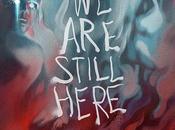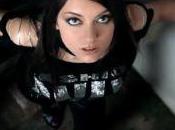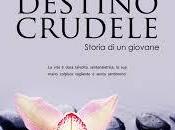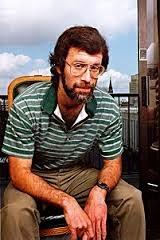 Oggi pubblico l'intervista che mi ha concesso lo scrittore americano Robert Reed, indiscusso maestro delle short story di fantascienza, nonché vincitore del Premio Hugo.
Oggi pubblico l'intervista che mi ha concesso lo scrittore americano Robert Reed, indiscusso maestro delle short story di fantascienza, nonché vincitore del Premio Hugo.L'intervista uscirà oggi in contemporanea su Nocturnia e su IFET , come sempre ringrazio il mio intervistato per la sua gentilezza e per aver avuto fiducia in uno sconosciuto blogger italiano.
A voi invece, auguro ancora una volta, buona lettura.
Aspetto i vostri commenti!
( For english version, please scroll down )
Nick: Benvenuto su Nocturnia Robert, grazie per aver accettato questa intervista.
Come prima domanda ti chiedo di parlarci dei tuoi inizi e del momento in cui hai deciso di diventare uno scrittore.
Robert Reed: Diversamente dalla maggior parte dei bambini, non ho mai rinunciato a giocare nella mia testa. Avevo 17 anni e nel seminterrato della casa di mia madre, mi divertivo a creare le immagini e la storia storia di un mondo che era solo mio e, anche, qualche personaggio che poi non ha lasciato nessuna traccia di sé. Ma mi venne in mente che avrei potuto scrivere di questa roba e venderne il risultato. Ho pensato che sarebbe stato un lavoro facile. Naturalmente mi sbagliavo sul particolare della facilità. Ma se c'è stato un momento, bene è stato questo.
Nick: In particolare cosa ti ha avvicinato alla fantascienza?
Reed: Apprezzavo molto la scienza e talvolta apprezzavo la fantascienza, sia sotto forma di romanzo che sotto forma di film. Il genere del romanzo storico comporta il dover compiere una enorme quantità di ricerche, e non credo di possedere la disciplina giusta per farlo. La narrativa Mainstream, in particolare per quanto riguarda la narrativa breve, mi sembrava un piccolo campo dominato da pochi nomi D'altra parte, sapevo che avrei potuto pensare in termini fantascientifici. I mercati erano floridi e le vecchie opere erano sempre presenti sugli scaffali delle librerie - il che non è una piccola lusinga quando si pensa a un rapporto a lungo termine con ogni genere .
Ma quella floridezza di mercato riguardava solo alcuni grandi successi. Nel tempo poi gli anticipi medi - cioè i guadagni per i romanzi - sono calati notevolmente. E ho sentito raccontare storie di libri di smessi di stampare ancora prima che potessero raggiungere le librerie. Ma noi sposiamo sempre la persona che conosciamo in quel preciso momento, non possiamo mai prevedere come lei o lui diventerà dopo 40 anni .
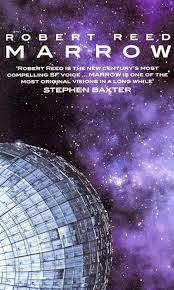 Nick: Quali sono stati gli scrittori che ti hanno più influenzato come lettore prima ancora che come scrittore?
Nick: Quali sono stati gli scrittori che ti hanno più influenzato come lettore prima ancora che come scrittore?Reed: Potrebbe sembrare sorprendente sapere ma Ernest Hemingway ha significato molto per me .
Ci sono ancora giorni nei quali uso il punto di vista di un bambino, e i suoi lavori rendono ogni frase più fresca.
Nick: Nel 1986 vinci il premio Writers of the Future con il racconto Mudpuppies.
Sulla base della tua esperienza quanto ritieni che sia importante per uno scrittore la vittoria di un premio importante?
Reed: La mia esperienza è atipica. Ho vinto quel concorso abbastanza presto nella sua Storia, e in quel'onore c'è stato anche il coinvolgimento di una buona dose di fortuna. Non ho modo di sapere quali siano i vantaggi e maledizioni che possano arrivare a chi vinca oggigiorno il Writers of the Future.
Inoltre, non ho molta simpatia per i premi in generale.Certo non mi piace perdere mai, e un giorno vincente può essere un buon giorno. Ma i premi sono anche una distrazione e un'ancora intorno al collo. Ho conosciuto scrittori che sono letteralmente scomparsi dopo aver vinto qualcosa di grande.
Una volta mi sono trovato a un panel di una Convention con un noto autore, adesso defunto. Lui ha ammesso che, dopo anni di continue nomination, quando ha finalmente vinto un dato premio, il risultato è stato solo quello di renderlo troppo consapevole di sé, facendolo finire in una spirale durata molti anni ancora.
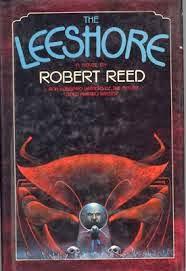
Nick: Il tuo romanzo di debutto è invece " The Leeshore" (1987), in cui per la prima volta appare una delle costanti della tua narrativa: un impianto scenografico classico (il pianeta o la realtà aliena ) su cui basi in maniera apparentemente lieve ma decisa le tue speculazioni sulla natura dell'umanità.
Quello che mi colpisce in particolare è che nelle tue opere descrivi una razza umana che nonostante l'evoluzione rimane sempre la stessa, con gli stessi bisogni e le stesse paure. E' una ricostruzione sbagliata la mia? E sopratutto, credi che sarà veramente così o la tua è una scelta solo per rendere più facile
l'immedesimazione dei lettori con i tuoi personaggi?
Reed: La mia definizione di fantascienza è : UN PUNTO DI VISTA DOVE PASSATO, PRESENTE E FUTURO VENGONO FUSI ASSIEME DENTRO UNA NARRAZIONE PROFONDAMENTE ARTIFICIOSA
Io posso avere una sorta di conoscenza su cosa potrà succedermi domani, però la spesso realtà mi ha sorpreso. Non ho niente di più che indizi su ciò che potrebbe accadere tra 20 anni da oggi. E i secoli successivi sono oltre la mia portata .
L'ignoranza è la libertà di fare quello che voglio e questo è ciò che il mercato accetterà .
La fantascienza si vanta di concentrarsi sul futuro . Ma se non si dispone di volti riconoscibili e di impulsi umani, nessun essere umano andrà a leggere l'opera .
Quindi sì, io voglio che i miei lettori siano numerosi, e volendo tenerli impegnati ho inserito a metà strada personaggi vicini alla normalità nei miei racconti .

Nick: Nei tuoi racconti spesso descrivi il rapporto dell'Umanità con la Scienza, la Tecnologia e la Religione. In particolare, i tuoi personaggi e le tue storie sembrano rilevare una sorta di ambivalenza, anche di scetticismo verso questi temi. E' il tuo modo di indirizzare la tua visione verso questi Temi e il tuo modo di affrontarli?
Reed: Sì, sono ambivalente. Anche la Scienza, che è un enorme macchina di potere e che fornisce effetti duraturi, nella sua azione è ostacolata dai limiti dei grandi scimpanzé dotati di cervello che impiegano i suoi trucchi .
Nick: Una delle tue opere più conosciute è il romanzo Marrow (2000) , a sua volta tratto da altri racconti, che da il nome al ciclo omonimo. In Marrow riprendi uno dei concetti più classici della fantascienza: quello della Nave spaziale che è al contempo Mondo e Prigione che ospita diverse culture. Io ci ho visto anche una tua personale versione di un tema molto sentito nell'America
contemporanea, quello dell'incontro \scontro di civiltà diverse . Per la seconda volta ti chiedo se la mia è una ricostruzione sbagliata .
Reed: Mi sembra una valutazione corretta. La realtà americana influenza parecchio mio lavoro.
A proposito, ho una nuova trilogia dedicata al' Universo di Marrow che è stata appena rilasciata dalla Prime Books. The Memory of Sky che sta per essere pubblicato in America in un unico volume, ed è sostanzialmente una storia a sè stante. ( Le persone che lavorano nel business dei libri mi hanno detto che nessuno sa cosa sta succedendo nell'ambiente di lavoro. La Disperazione genera un sacco di queste decisioni editoriali . )
Se pensi di ritrovare il mio paese dentro le pagine di Marrow , prova a leggere le mie 250.000 parole di Sky .
Nick: Sei uno scrittore estremamente prolifico, in particolare sei uno dei pochi scrittori in America che sembra privilegiare questa forma narrativa rispetto ai romanzi. Cosa ti attrae in particolare nei racconti come forma narrativa e cosa te la fa preferire rispetto ai romanzi?
Reed: I Romanzi hanno bisogno di sostenitori, sostenitori finanziari ed emozionali . Ma io non sono un autore importante, il che limita le mie opzioni. Inoltre nella narrativa breve io posso fare quello che voglio. Ho relazioni a lungo termine con i curatori di riviste e di antologie che si fidano di me. Posso provare cose che nessun editore di romanzi permetterà. Posso dedicarmi a personaggi torvi e a disperazione senza fine, e tutto ciò che esigo da parte dei lettori è mezz'ora del loro tempo. I Romanzi non sono così fortunati, o così liberi .
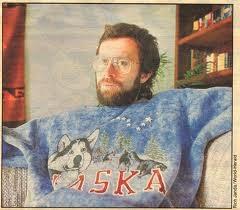
Nick: Ogni anno un tuo racconto appare in almeno una delle antologie del meglio, spesso anche in più di una, quasi ogni anno poi sei candidato ai premi più importanti ( tra gli altri il tuo Un Miliardo di Donne come Eva ha vinto il prestigioso Premio HUGO come miglior romanzo breve). Ti emoziona ancora vedere che le tue storie ottenere questi risultati oppure non ci fai nemmeno più caso? E dove trovi le tue ispirazioni?
Reed: Noto sempre i miei successi, anche se posso dimenticare in fretta dove una mia storia viene pubblicata.
Per l'ispirazione ? Mi siedo in giro e vado avanti tutto il giorno, a creare storie. E 'quello che il mio cervello fa . E probabilmente, a differenza della maggior parte delle altre persone ho una capacità ben affinata per rendere i concetti vaghi trasformandoli in un racconto semi- efficace. Ma ho fatto questo per 40 anni , di cui 30 da professionista, che mi fa entrare in un gruppo molto ristretto di persone .
Nick: Dovendo consigliare ad una persona che non abbia mai letto niente di tuo, cosa gli consiglieresti come esemplificativo della tua narrativa?
Reed: Di cominciare con Marrow, i romanzi e le opere più brevi . C'è una voce e sensibilità in loro che non è differente rispetto a qualsiasi altra cosa che io abbia scritto ... ma se le opere non sono per tutti, non credo di fare niente di diverso in tutte che catturare miei punti di forza e allontanare le mie genuine debolezze .
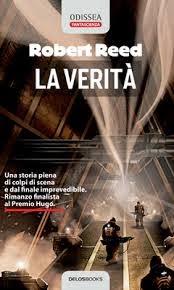
Nick: Com'è cambiata la fantascienza rispetto ai tuoi inizi ?
Reed: La fantascienza è ovunque - cinema, televisione , videogiochi - ma molto poco è stato scritto da scrittori di fantascienza. Viviamo in un mondo fantascientifico, completo di Tablets e di cambiamenti climatici con il cielo che si riempie di nuovi pianeti. Ma per tutte le cose degne di nota sorprendentemente è cambiato molto poco nella vita quotidiana .
Sai, quel regno mondano che la fantascienza insiste ad ignorare .
Nick: Progetti futuri: a cosa stai lavorando adesso e cosa ci dobbiamo aspettare
da Robert Reed nel prossimo futuro?
Reed: Ho dei nuovi romanzi in uscita. Le mie storie del ciclo di Marrow sono state unite insieme e in parte riscritte, ora ho un e- book pubblicato : The Greatship è il titolo da cercare on -line. Sto lavorando per una importante game company, per la costruzione di contenuti . ( Ma devo stare attento a parlare di loro. Loro Sono timidi . ) E ho intenzione di pubblicare una consistente storia alternativa , anche se il modo con cui lo farò rimane un mistero..
Nick: Bene, Robert è tutto, Ti ringrazio ancora per aver accettato. Nel salutarti ti rivolgo la classica domanda finale di Nocturnia: ci sarebbe stata qualche questione a cui avresti risposto volentieri e che io invece non ti ho rivolto?
Reed: Qual è il mio rapporto con i prodotti tecnologici :
Ho un grande computer portatile al piano di sotto, ma lo tengo spento. E' stata la mia macchina principale per più di 3 anni, ma ora è in gran parte inutilizzato.Adesso io uso un servizio on -line per il mio lavoro, che utilizzo aprendo più dispositivi. Ho comprato un secondo e più piccolo computer portatile, una sorta di cavallo di battaglia portatile, ma non mi piace la tastiera. Così, l'ho collegato al televisore principale e lo lascio sempre su, e mi serve come una sorta di centro multimediale per lo streaming di alcuni video e musica. Ho e-readers. Sto leggendo più adesso che in tanti anni passati, il che è fantastico. Tengo una flotta di Nooks , che è il sistema di Barnes and Noble. Non perché mi piaccia di più, ma perché la famiglia è cresciuta in modo precoce, e i Nooks sono relativamente a buon mercato, e possono essere utilizzati in vari modi, aprendo Google - che, a proposito è la società che finirà per dominare il mondo. Per altri motivi tecnologici, il mio altoparlante stereo dopo 25 anni di onorato servizio è recentemente venuto a mancare, a me non piacciono le cuffie, ma amo avere la riproduzione di musica durante il lavoro. Così stiamo adoperando pesantemente in Sonos, che è Internet e wi- fi in natura, e quando va la musica tutta la casa ne viene scossa . Finché il segnale non si interrompe per qualche motivo difficile da diagnosticare .
INTERVIEW WITH ROBERT REED- THE ENGLISH VERSION.
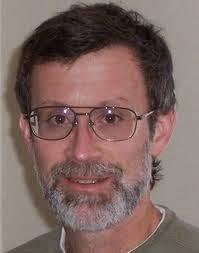
Today I am publishing an interview with writer Robert Reed. Reed has long been the acknowledged master of the SF short fiction as well as winner of the Hugo Award.
I thank Reed for his kindness and for his availability.
To all of you instead wish you a good reading, waiting for your comments.
Nick Parisi: Welcome to Nocturnia Robert , thank you for accepting this interview. As a first question I ask you to tell us about your beginnings and the moment when you decided to become a writer.
Robert Reed: Unlike most children, I never gave up playing inside my head. I was 17 years old and pacing in the basement of my mother's house, dealing with imagery for a story and a made-up world and some character that has left nothing about himself. But it occurred to me that I could write this crap down and sell it. I thought it would be easy work. I was wrong about it being easy, of course. But if there was a moment, that was it.
Nick: In particular, what did guide you to science fiction ?
Reed: I enjoyed science and sometimes enjoyed science fiction, both as fiction and as film. Historical fiction involves a huge amount of research, and I haven't the discipline. Mainstream fiction, particularly for short fiction, looked like a small field dominated by a few names. On the other hand, I knew that I could think in SF terms. The markets were robust, and old works were always on the bookstore shelves--not a small enticement when you think about a long-term relationship with any genre.
That market robustness has taken some big hits. Average advances--money for novels--have declined significantly. And I have heard stories about books going out of print before they reach the store. But we always marry the one we date, not how she or he will be in forty years.
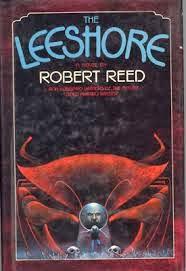 Nick: What were the writers who have most influenced you as a reader even before that as a writer?
Nick: What were the writers who have most influenced you as a reader even before that as a writer?Reed: Surprising as it might sound, Ernest Hemingway meant a lot to me. There are still days when I use a child's point of view, and his work informs every crisp sentence.
Nick: In 1986, you won the prize Writers of the Future with the story Mudpuppies . Based on your experience as you think it is important for a writer to win a major prize ?
Reed: My experience is atypical. I won that contest early in its history, and there was a good deal of chance involved in the honor. I have no way of knowing what benefits and curses come with a Writers of the Future win today. Also, I don't have much fondness for awards in general. I don't like to lose anything, and a winning day can be a good day. But they are also a distraction and an anchor around the neck. I've known writers who have vanished after winning something big. I once sat on a convention panel with one well-known author, now dead. He admitted that after years of being nominated, he finally won, and the result was to make him self-conscious, putting him into a tailspin that lasted for several more years.
Nick: Your debut novel is instead "The Leeshore " (1987 ), in which for the first time there is one of the constants in your narrative : a classic set design ( the alien planet or reality ) on which bases in a seemingly mild but decided on your speculations about the nature of humanity. What strikes me in particular is that in your work you describe a human race that, despite the trend remains the same and with the same needs and fears. It ' a reconstruction of my wrong ? And above all , do you think it will be really so or is your choice, just to make it easier for readers' identification with your characters ?
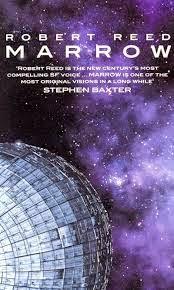 Reed: My working definition of science fiction: A POINT OF VIEW WHERE THE FUTURE, PAST, AND PRESENT MERGE INTO A SHARED, DEEPLY CONTRIVED NARRATIVE.
Reed: My working definition of science fiction: A POINT OF VIEW WHERE THE FUTURE, PAST, AND PRESENT MERGE INTO A SHARED, DEEPLY CONTRIVED NARRATIVE.I sort of know what's going to happen tomorrow, although reality has surprised me. I don't have anything more than clues about what could happen 20 years from today. And the next centuries are beyond my reach.
Ignorance is freedom to do what I want and what the market will accept.
Science fiction boasts about focusing on the future. But if you don't have recognizable faces and human impulses, no human is going to read the work.
So yes, I want my readers to be abundant, and wanting them engaged, I put halfway normal souls into the tales.
Nick: In your stories often you address humanity's relationship with science, technology and religion. In particular, your characters and your stories have a kind of ambivalence, even skepticism to these issues. addressing these issues and addressing them especially with this view?
Reed: Yes, I am ambivalent. Even science, which is an enormous machine of power and lasting effects, is hamstrung by the limits of the big-brained chimpanzees that are employing its tricks.
Nick: One of your most famous works is the novel Marrow (2000) , in turn taken from other stories . which gives its name to the cycle of the same name. Marrow resume in one of the most classic of science fiction concepts : that of the spacecraft , which is both the World and Prison which houses various cultures. I 've also seen your own personal version of a very salient issue in contemporary America , the encounter \ clash of civilizations. For the second time I ask if my reconstruction is wrong .
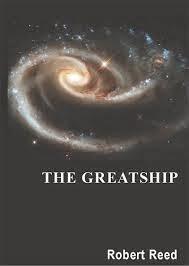
Reed: That seems like a fair assessment. America very much gets into my work.
By the way, I have a new Marrow-universe trilogy just released by Prime Books. The Memory Of Sky is being published in America in one volume, which is a story onto itself. (People in the business of books have told me that nobody knows what's going to work. Desperation generates a lot of these publishing decisions.)
If you think you see my country in Marrow, look at my 250,000 words of Sky.
Nick: You are a prolific writer , in particular, are one of the few writers in America that seems privileggiare this narrative form than the novels. What attracts you in particular in the stories as a narrative form and what makes you prefer compared to the novels ?
Reed: Novels need backers, financial and emotional backers. But I am not a major author, which limits my options. Also in short fiction, I do what I want. I have long-term relationships with magazine and anthology editors who trust me. I can try stuff that no novel publisher will allow. I'll embrace grim characters and endless despair, and all that I demand from readers is half an hour of their time. Novels aren't so lucky, or so free.
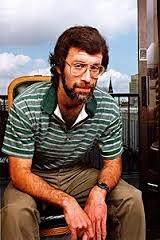
Nick: Each year, your story will appear in at least one of the best anthologies , often in more than one almost every year then you're nominated for major awards (among others your A Billion Eves has won the prestigious award for Best HUGO short novel ) . Excites you still to see your stories get these results or you do not even notice it ? And where do you find your inspiration ?
Reed: I notice the successes, although I can quickly forget what story is appearing where.
For inspiration? I sit around and walk around all day, building stories. It's what my brain does. And maybe more than most people, I have a well-honed ability to make vague concepts into a half-effective narrative. But I've been doing this for 40 years, 30 as a professional, which puts me in rare company.
Nick: Having to advise a person who has never read anything of yours, what would you recommend as an example of your fiction ?
Reed: Go with Marrow, the novels as well as the shorter works. There's a voice and sensibility to them that is no more mine than anything else that I write...but while the works aren't for everyone, I don't think I do much else that both captures my strengths and pushes aside my genuine weaknesses.
Nick: How has been the science fiction changing from your beginnings ?
Reed: Science fiction is everywhere--movies, television, video games--but very little is written by SF writers. We live in a science fiction world, complete with tablets and a changing climate and the sky filling up with new planets. But for all of the remarkables, amazingly little has changed in daily life.
You know, that mundane realm that science fiction insists on ignoring.
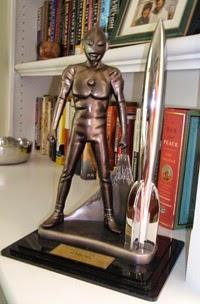
Nick: Future plans : What are you working on now and what can we expect from Robert Reed in the near future ?
Reed: I have the new novels. My Marrow stories have been strung together and partly rewritten, now e-book published: The Greatship is the title to hunt on-line. I am working for a major game company, building content. (But I have to be careful talking about them. They're shy.) And I intend to publish a substantial alternate history, although how I do that remains a mystery.
Nick: Well, Robert is all , thank you again for agreeing . In greet you turn the classic question of final Nocturnia : there would be some question which would have responded willingly and yet I will not I addressed ?
Reed: What is my relationship with tech products:
I have a big laptop downstairs, turned off. It was my main machine for 3+ years, but now it's mostly unused. I use an on-line service for my work now, opening up multiple devices. I bought a second, smaller laptop as a portable workhorse, but I don't like the keyboard. Thus, I have it wired to the main television, always on, and it serves as a kind of media center for streaming certain videos and music. I have e-readers. I'm reading more than I have in years, which is great. I keep a fleet of Nooks, which is the Barnes and Noble system. Not because I like them best, but because the household went that way early, and the Nooks are relatively cheap, and they can be rooted by various means, opening up Google--which is the corporation that will eventually rule the world, by the way. And for more tech business, my 25 year-old stereo speakers recently died, and I don't like headphones but love having music play while working. So we have gone heavily into Sonos, which is Internet and wi-fi in nature, and the whole house can shake with music. When the signal isn't breaking up for some hard-to-diagnose reason.
